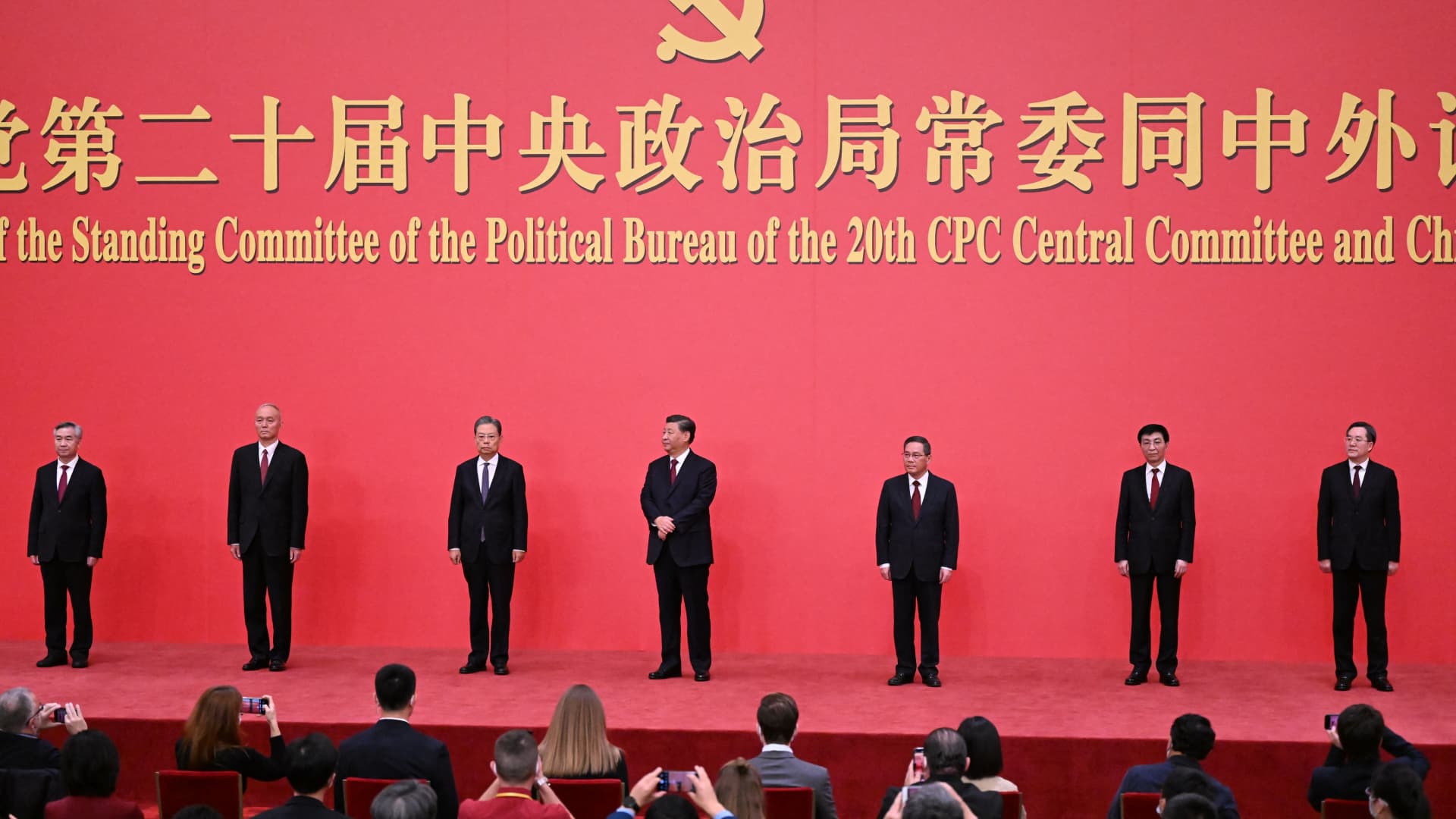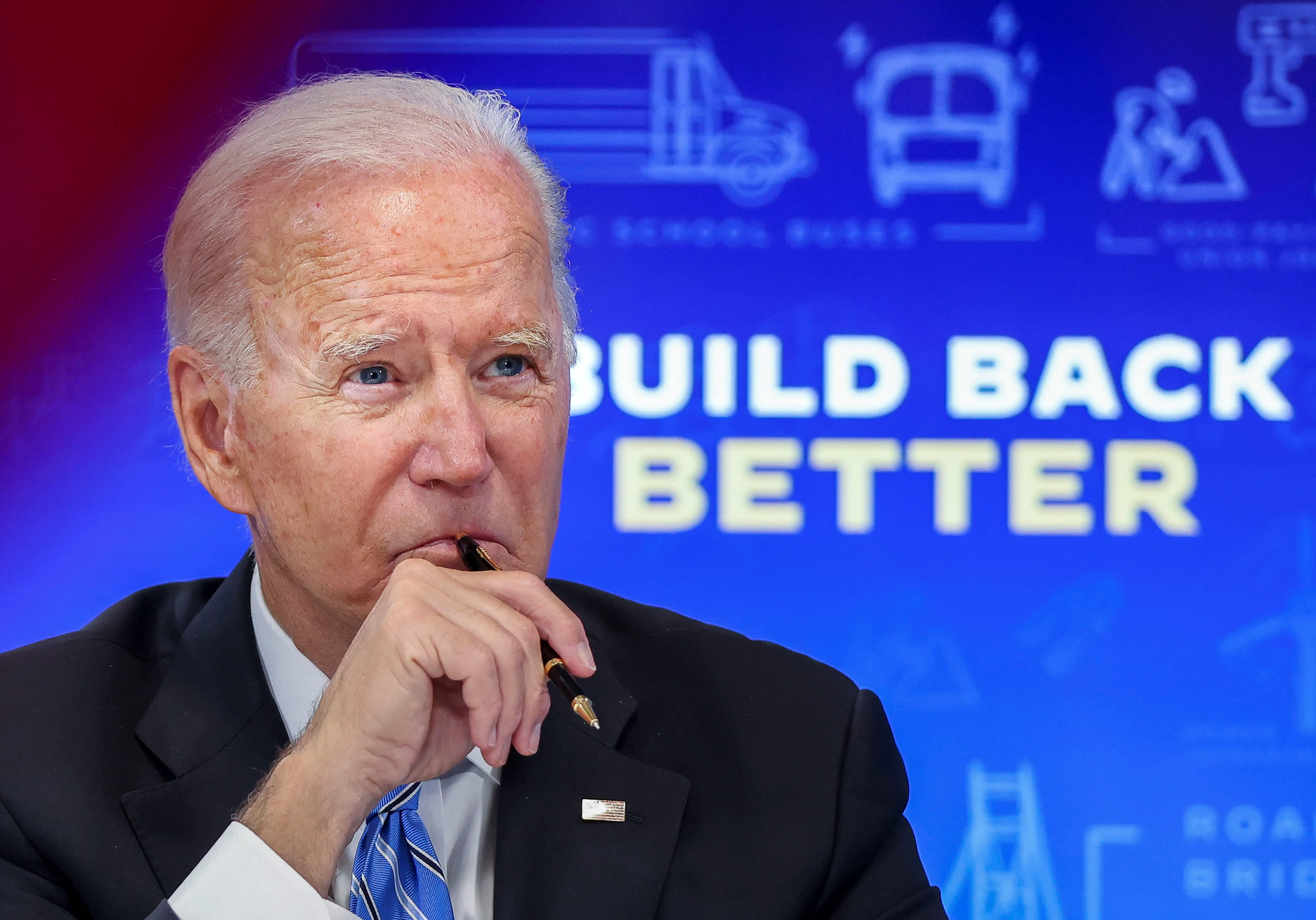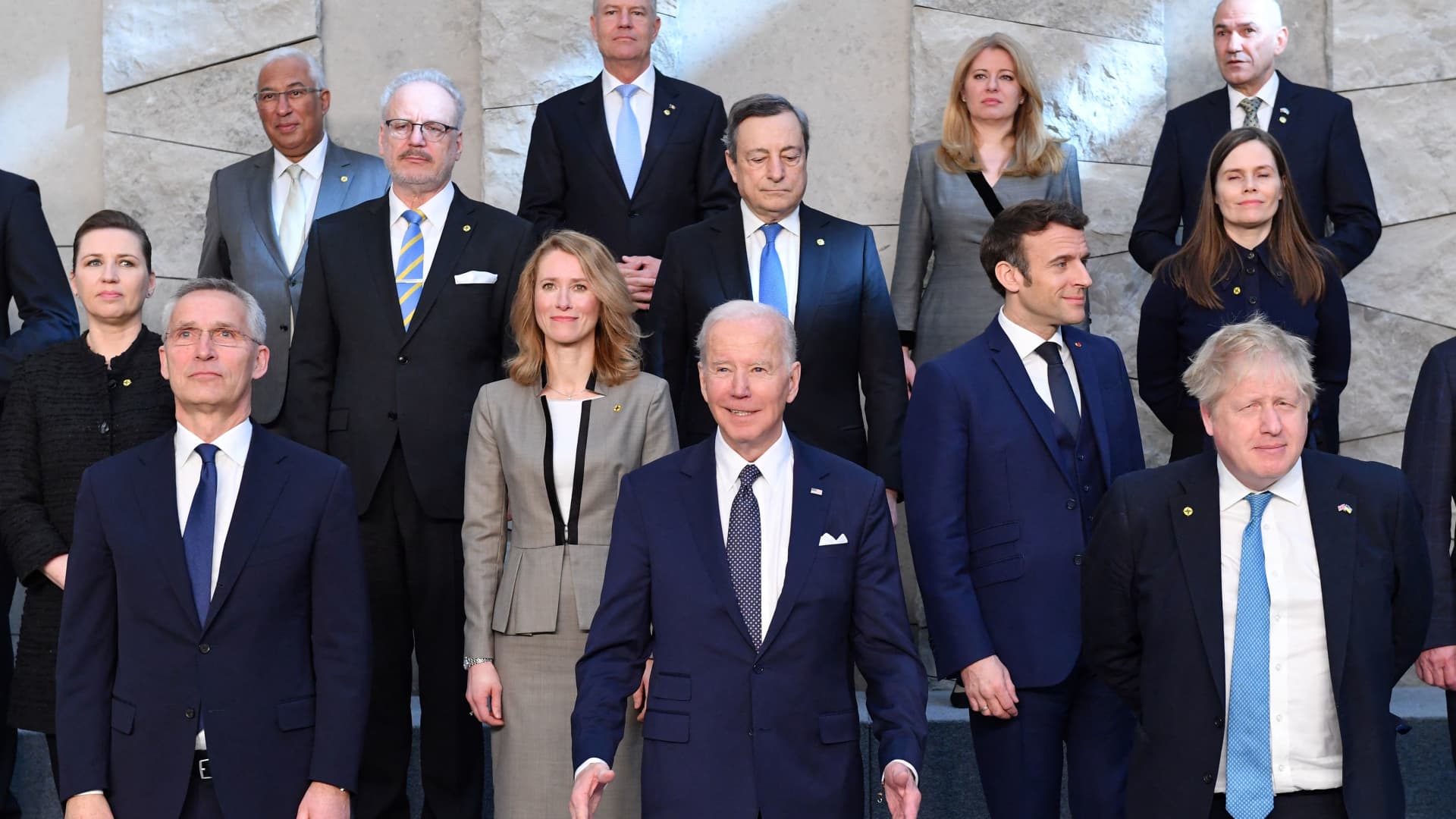China names Xi Jinping loyalists for core leadership group
In remarks Sunday, Xi emphasized the Party's leadership in "a new journey to turn China into a modern socialist country," according to an official translation.

China's President Xi Jinping (L) walks with members of the Chinese Communist Party's new Politburo Standing Committee, the nation's top decision-making body, as they meet the media in the Great Hall of the People in Beijing on Oct. 23, 2022.
Noel Celis | AFP | Getty Images
BEIJING — Chinese President Xi Jinping broke precedent Sunday by paving the way for his third term as president, and the likely appointment of a premier with no prior experience as vice premier.
Li Qiang, party secretary of Shanghai, walked out second behind Xi at a meeting with press on Sunday. Li is a known Xi loyalist and oversaw stringent Covid controls in Shanghai earlier this year.
State positions such as president and premier won't be confirmed until the next annual meeting of the Chinese government, typically held in March.
Outgoing Premier Li Keqiang had walked out second behind Xi at a similar meeting with press after the conclusion of the party's 19th National Congress in 2017.
Since Li Keqiang, all of modern China's premiers, except for the first, previously served as vice premiers. However, Li Qiang has not previously held a vice premier role, according to a state media biography.
In addition to Xi and Li Qiang, five other individuals were named to the new Politburo standing committee, the core circle of power in the ruling Communist Party of China: Zhao Leji, who's headed party discipline; Wang Huning, known for his work on ideology; Beijing party secretary Cai Qi; Ding Xuexiang, known as Xi's chief of staff, and Li Xi, Guangdong party secretary.
Xi was re-selected as the party's general secretary and chairman of the Central Military Commission. His third title is president of China, which is likely to be formalized in March. Xi had set the stage for an unprecedented third, five-year term as president with constitutional changes in 2018.
Li Xi was named the new head of the party's Central Commission for Discipline Inspection, state media said Sunday.
China's President Xi Jinping (C) and other members of the Communist Party of China's Politburo Standing Committee meet the media in the Great Hall of the People in Beijing on Oct. 23, 2022.
Noel Celis | AFP | Getty Images
In remarks Sunday, Xi emphasized the Party's leadership in "a new journey to turn China into a modern socialist country," according to an official translation.
He said China could not develop in isolation from the world, but that the world also needs China. Xi claimed China would open its door "ever wider" and that the country would be "deepening reform and opening up across the board and in pursuing high quality development."
Foreign businesses and investors have turned cautious on China after Beijing's crackdowns on internet tech companies and stringent Covid controls in the last two years.
The Chinese Communist Party's 20th National Congress this month was watched closely for its signals on how much Xi might consolidate his power.
Four of the prior seven members of the Politburo standing committee did not make the list of the new central committee members announced Saturday. The only three who remained were Xi, Wang Huning and Zhao Leji.
That central committee determines the core leadership — the Politburo and its standing committee.
Top-level economic policy in China is largely set by Politburo members. However, Li Keqiang has been an official face and leader of implementation in his role as premier and the head of the State Council, China's top executive body.
In addition to purging allegedly corrupt officials, Xi consolidated his power over the last decade with groups that went around the premier's typical economic policy-making responsibilities, Reuters pointed out.
Read more about China from CNBC Pro
Notable ministry heads who remained on the new party central committee list included:
He Lifeng, head of the National Development and Reform CommissionYi Huiman, head of the China Securities Regulatory CommissionZhuang Rongwen, head of the Cyberspace Administration of ChinaThe NDRC's He was also named to the new Politburo.
Bruce Pang, chief economist and head of research for Greater China at JLL, said some of the central committee appointments have experience in finance and local government, indicating to him that "the shake-up will not lead to dramatic changes of China's macro policies."
"We expect that policy focus will not be on launching new stimulus, but on implementing the existing policies and letting them take effect," Pang said. "Propping up domestic demand to support jobs thus remains key."
Pang also noted that Li Qiang previously led three province-level areas, including Shanghai, that are known for their contributions to China's "opening-up" and economic growth.
Emphasis on security and quality
Xi's opening speech at the party's 20th National Congress affirmed China's greater focus on national security and "high-quality" growth. In fact, that shift away from high-speed growth of past decades means China faces "a new situation for attracting foreign investment," an official at the economic planner said.
While Xi's report to the congress "delivers a strong message of policy continuity," it signals there are competing objectives and that some kinds of economic growth are preferred to others, Gabriel Wildau, managing director at consulting firm Teneo, said in a note.
"Party leaders want advanced manufacturing and technology to be the key drivers of growth," Wildau said.
Xi has also emphasized the need for unity within the Chinese Communist Party in order to achieve "national rejuvenation." The 20th National Congress, which ended Saturday, agreed to amend the national constitution to incorporate more "Xi Thought," according to state media.
A question of succession
For many China watchers, the question is not how Xi consolidates power, but who his successor might be.
Under Xi, China's bureaucracy has become less autonomous and more tied to him personally — especially since there are few checks on power, Yuen Yuen Ang, associate professor of political science at the University of Michigan, wrote in the Journal of Democracy in July.
The threat to the Chinese Communist Party's hold on power, she said, "will be succession battles resulting from Xi's personalist rule."

 Tfoso
Tfoso 































